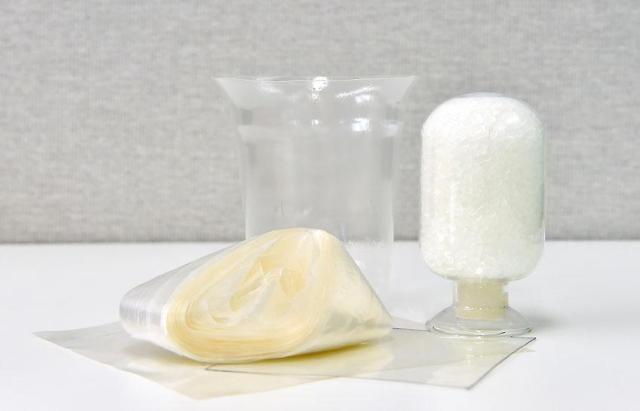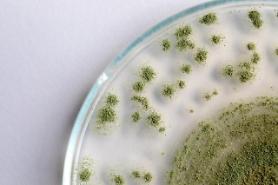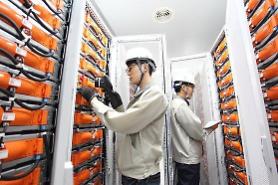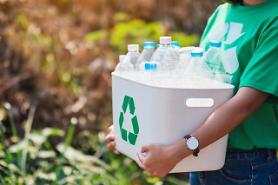
[Courtesy of LG Chem]
SEOUL -- As part of its push for the production of eco-friendly plastic materials, LG Chem, a wing of South Korea's LG Group, has developed a new biodegradable material that can be used for plastic bags, air cap buffers, disposable cups and foaming products because of improved flexibility and transparency. The company unveiled the goal of mass production in 2025.
The new material can realize mechanical properties equivalent to synthetic resins for the first time in the world, LG Chem said, adding it is a single biodegradable material with 100 percent bio contents using corn-based glucose and crude glycerol.
"In a time where there is growing interest around the world on eco-friendly materials, it is very meaningful that we successfully developed biodegradable platform materials with proprietary technologies using 100 percent bio ingredients,” LG Chem's chief technology officer Ro Ki-su said in a statement.
The company said the new material significantly improved flexibility and transparency compared to existing biodegradable materials through proprietary technologies and production processes. Existing biodegradable materials have constraints in properties because other plastic materials or additives must be mixed to strengthen properties and flexibility. LG Chem said the new material improved flexibility by more than 20 times.
With the new material, LG said it is possible to achieve quality desired by customers and properties for specific use, citing the ripple effect in the eco-friendly packaging industry as it can be applied in many other fields such as plastic bags, air cap buffers, disposable cups, foaming products and mask felts where there is a growing demand for biodegradable materials.
DIN CERTCO, a German certification agency, has confirmed that over 90 percent of the new material was decomposed within 120 days, LG Chem said, promising to conduct prototype evaluations for client companies in 2022 with the goal of mass production in 2025.
Bioplastics can be made from agricultural by-products and also from used plastic bottles and other containers using microorganisms. LG Chem has tried to commercialize polybutylene adipate terephthalate (PBAT) and polylactic acid, a corn ingredient. PBAT is a biodegradable random copolymer used such as plastic bags and wraps. PBAT makes it ideal for combination with other biodegradable polymers.
Copyright ⓒ Aju Press All rights reserved.




